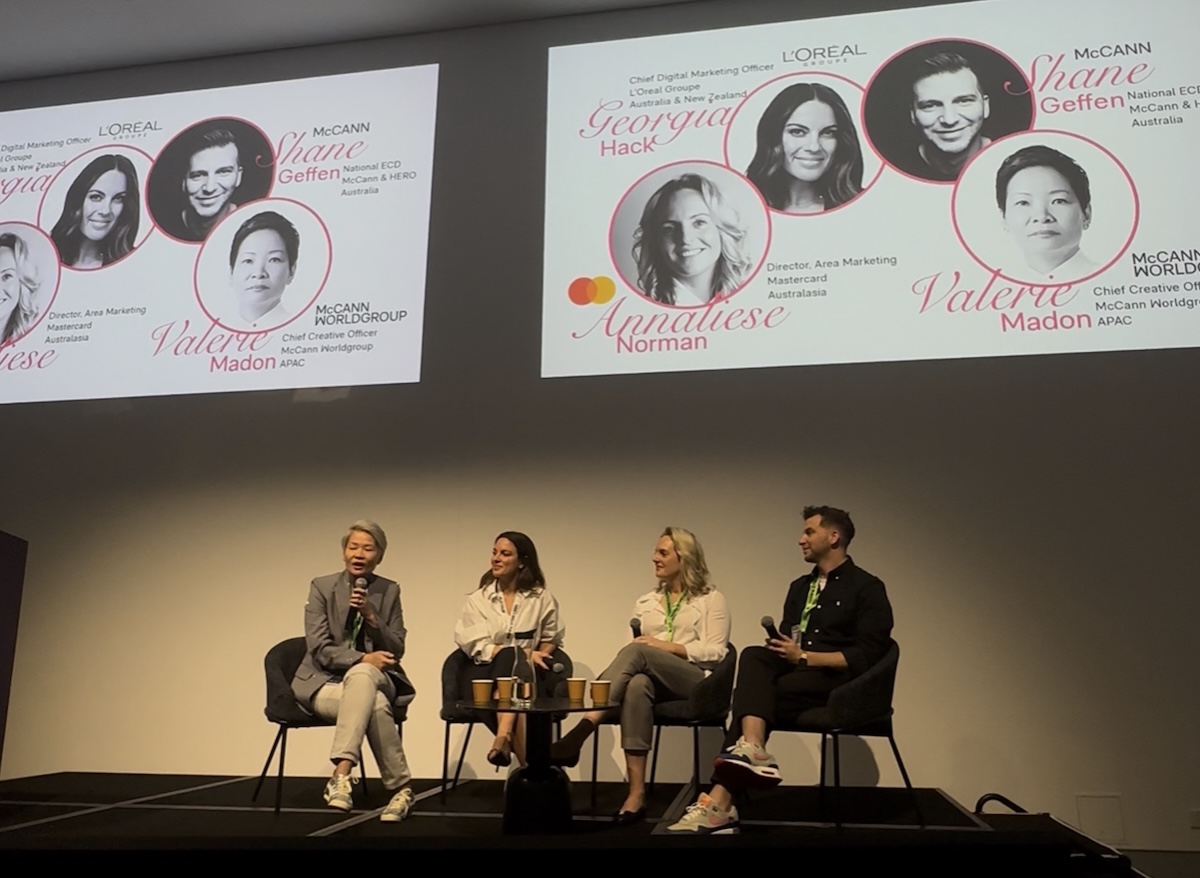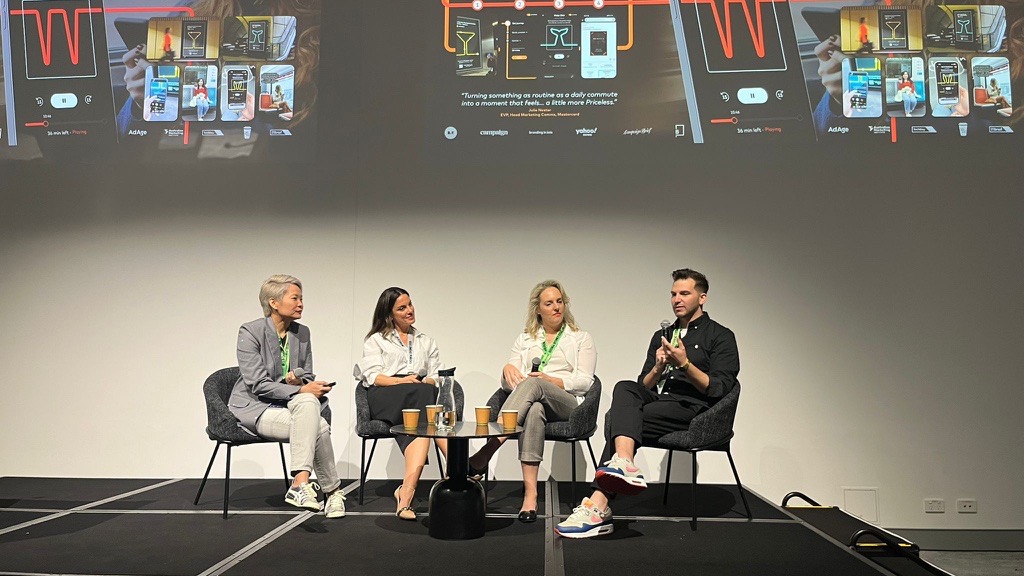McCann Worldgroup, L’Oréal Groupe and Mastercard Discuss the Future of Brand Impact in the Age of Technology at SXSW Sydney

Global creative network, McCann Worldgroup, hosted a powerhouse panel at SXSW Sydney, bringing together brand leaders from L’Oréal Groupe, Mastercard, and McCann Australia to explore how technology is reshaping the creative landscape and how enduring brand ideas can continue to thrive in an AI-driven world.
Titled “The Creative Edge: Mastering Tech for Brand Impact”, the session featured Valerie Madon, Chief Creative Officer of McCann Worldgroup Asia Pacific; Georgia Hack, Chief Digital & Marketing Officer at L’Oréal Groupe Australia & New Zealand; Annaliese Norman, Director, Marketing, Australasia at Mastercard; and Shane Geffen, National Executive Creative Director of McCann & HERO Australia.
Together, they discussed how two of the world’s most enduring brand platforms, L’Oréal Paris’ “Because You’re Worth It” and Mastercard’s “Priceless”, have evolved through decades of cultural and technological change while remaining rooted in deeply human truths.
The panel highlighted recent innovations demonstrating how technology can enable new ways of storytelling and creativity. One example is Mastercard’s “Transit Tales” campaign in Australia. The experience, which is ongoing in Sydney, turns a mundane travel experience into an exciting and emotional journey by using AI to generate unique narrations of literary classics based on the user’s route, their preferred genre, and length of journey. By using AI and imagination to create moments of storytelling and delight, making the everyday experience becomes exponentially meaningful, this campaign further exemplifies their “Priceless” brand platform.
“Artificial intelligence is transforming the way we connect with people, enabling marketers to move faster, make smarter decisions, and deliver more meaningful experiences at scale. When applied thoughtfully, and with creativity and empathy at the centre, AI becomes a powerful multiplier,” said Annaliese Norman, Director, Marketing, Australasia at Mastercard. “Transit Tales was a great example of how this technology can be harnessed to empower consumers to experience something new in even the most familiar moments, reimagining how people can engage with our brand during their everyday commute.”

Meanwhile, McCann Paris’ collaboration with L’Oréal Groupe showcased how AI can deliver beauty experiences that are both personalised and purposeful. The agency developed and launched Beauty Genius, a generative AI-powered personal beauty assistant offering 24/7 support across skincare, makeup, and hair care. Using selfie-based diagnostics and augmented reality try-ons, Beauty Genius provides lifelike, personalised beauty advice and recommendations from a catalogue of over 750 L’Oréal Paris products. The tool builds on the success of Makeup Genius, L’Oréal’s pioneering virtual mirror app, also developed with McCann, which used facial recognition to let users realistically try on makeup products in real time. Together, these innovations exemplify how technology can deepen connection, enhance accessibility and bring L’Oréal’s brand message to life through creativity.
The panel also explored how everyday technology can amplify storytelling and make brands more relevant in people’s daily lives when used purposefully and creatively.
Mastercard’s “Public Money ATMs” in Poland exemplified this approach. The campaign reimagined a simple financial interface, the ATM, as a platform for civic engagement. By allowing users to “withdraw” public funds symbolically to vote on community projects, Mastercard turned a routine financial interaction into a moment of empowerment. It humanised finance and reinforced “Priceless” as a platform that goes beyond transactions to champion transparency, participation and social good.
L’Oréal Paris’ “The Final Copy of Ilon Specht” campaign drew on a very different kind of technology: the power of digital storytelling to revive a forgotten legacy. The short documentary film uncovered the untold story of Ilon Specht, the copywriter who wrote “Because I’m Worth It” in 1971. By celebrating her words and vision through film and digital media, the brand reconnected its iconic tagline to its feminist roots, reminding audiences that technology can resurrect heritage, spark dialogue and reclaim the voices of women who shaped culture.
Innovation, the panel discussed, is most impactful when it is designed with people, not just for them.
Mastercard’s “Makeup Payment” campaign demonstrated this principle during Brazil’s Carnival. In partnership with local creators, Mastercard embedded contactless payment technology into wearable “makeup stones”, allowing festivalgoers to pay instantly without carrying wallets or phones. Seamlessly blending function with culture, the activation showed how tech can integrate naturally into human celebrations. This campaign shows how Mastercard’s technological innovation stems from deep-rooted human truths.
Meanwhile, L’Oréal’s “Big Bang Beauty Tech Innovation Program” redefines what co-creation means in the beauty industry. Designed to collaborate with startups, the program accelerates innovation in AR/VR experiences, sustainable packaging and AI-powered beauty tools. By inviting external innovators into the brand’s creative ecosystem, L’Oréal is transforming from a simple beauty brand into a beauty tech leader, anchored in purpose, inclusivity, and collaboration.
“Today’s consumers are demanding more personalised experiences, and we understand that technology has become the bridge that allows us to listen, reflect and respond in real time”, said Georgia Hack, Chief Digital & Marketing Officer, L’Oréal Groupe. “This is why L’Oréal Paris remains timeless – “Because You’re Worth It” is more than a line; it’s a promise. Even as we innovate, evolve and adapt to new technologies, we never lose sight of the distinctive brand codes and truths that make us who we are.”
In closing, the panellists agreed that technology is the catalyst for creativity. Technology should not overshadow brand storytelling and creativity.
From Mastercard’s AI-generated storytelling to L’Oréal’s digital reinvention of a 50-year-old tagline, each example reinforced a shared belief: that the world’s most powerful brands are built not by quick use of new technologies, but on the deep understanding of the cultures and the truths we live in. Technology will follow suit.
“Technology has changed the tools we use, but not the reason we create. The best ideas still start from a human truth, what people feel, fear, or hope for, and technology simply gives us new ways to express that. It’s not about chasing the next innovation; it’s about using innovation to keep ideas alive and relevant,” said Shane Geffen, National Executive Director of HERO & McCann Australia
As Valerie Madon, Chief Creative Officer of McCann Worldgroup Asia Pacific, aptly summarised, “Technology amplifies creativity, but it doesn’t define it. The heart of any enduring brand lies in the story it tells and the truth it stands for.”
